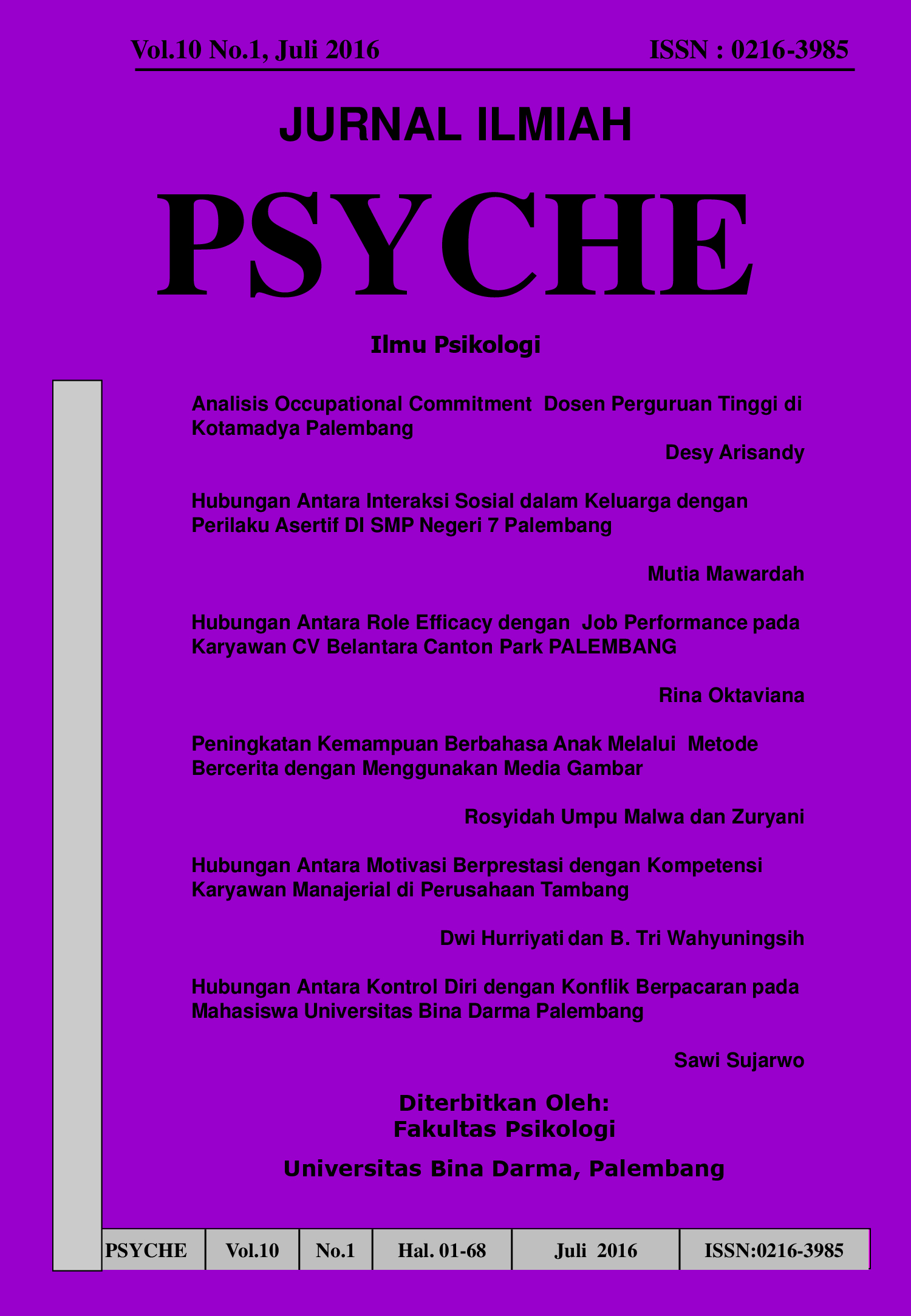Analisis Occupational Commitment Dosen Perguruan Tinggi di Kotamadya Palembang
Keywords:
occupational commitment, descriptive-quantitative research, questionnaires occupational commitmentAbstract
The purpose of this penelitiaan is to provide an analysis of occupational commitment on the faculty at the college in the Municipality of Palembang in performing the tasks Tridarma college.This research is a descriptive-quantitative research study that provides an overview based on the analysis of the subject answer score on a scale as it is. Collecting data using questionnaires occupational commitment. Data processing techniques using descriptive statistical methods.The calculation result of lecturers who are on component normative occupational commitment is still there as much as 10.87% of lecturers (45 people) who feel an attachment to their work based on responsibility and morality. While the professors who are in the affective component of occupational commitment as much as 34.52% or 146 lecturers who feel attachment to work
References
Graziano, A.M. & Raulin, M.L. 2008. Research Methods: A Process of Inquiry. 5th Edition. Harper & Row. New York.
Meyer J.P and Allen. 2008. Commitment in the Workplace: Theory, research, and application.inc. Sage Publication. United State of America.
Mowday, R.T., Porter, L.W., & Steers, R.M.. 2008. Employee-Organization Linkages: The Psychology of Commitment, Absenteeism, and Turnover. Academic Press. New York.
Sopiah. 2008. Perilaku Organisasi. Penerbit Andi. Yogyakarta.
Sugiyono. 2006. Metode Penelitian Kuantitatif Kualitatif dan R&D. Alfabeta. Bandung

Published
Issue
Section
License

Jurnal Ilmiah Psyche by http://journal.binadarma.ac.id/index.php/jurnalpsyche is licensed under a Creative Commons Attribution-ShareAlike 4.0 International License.







